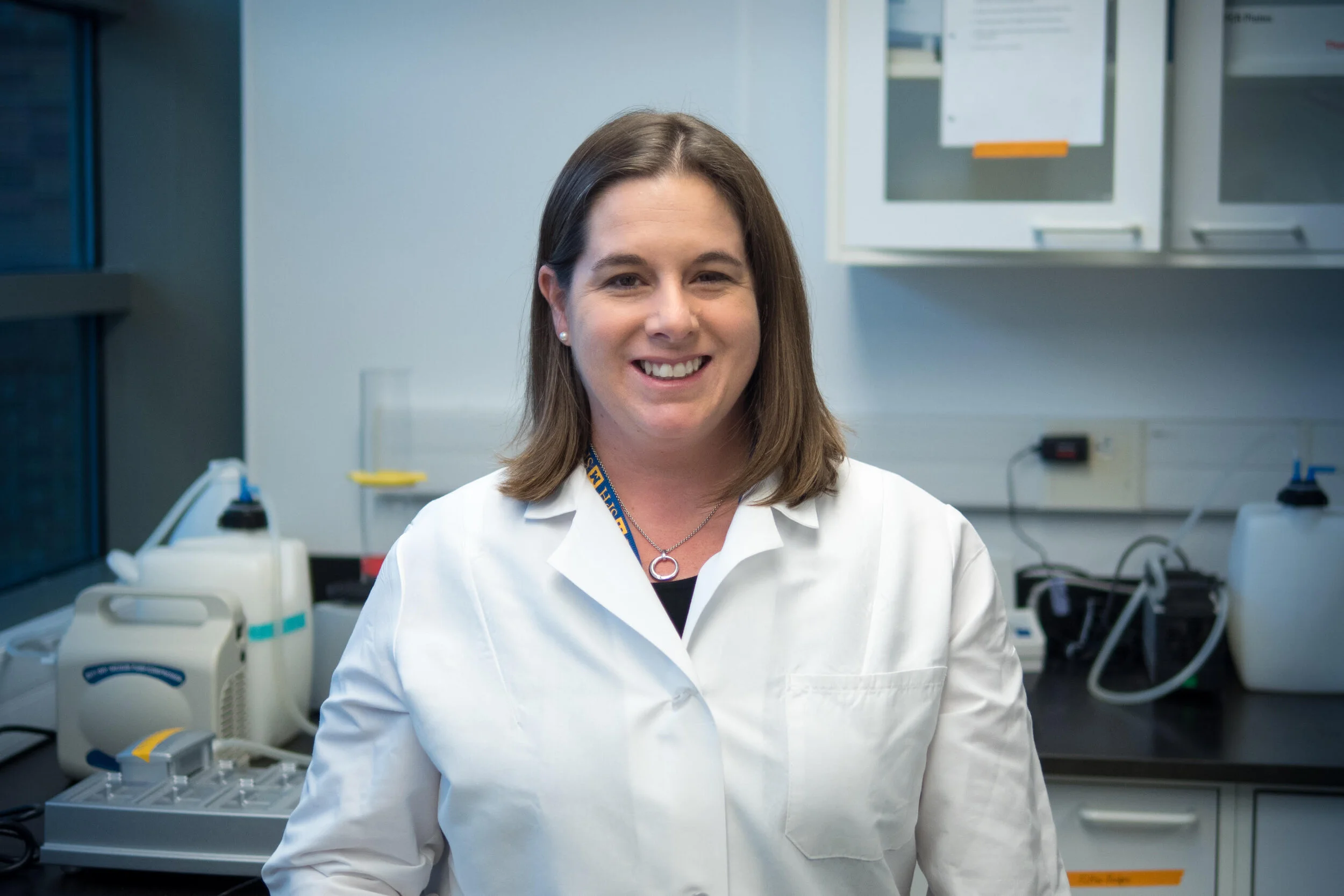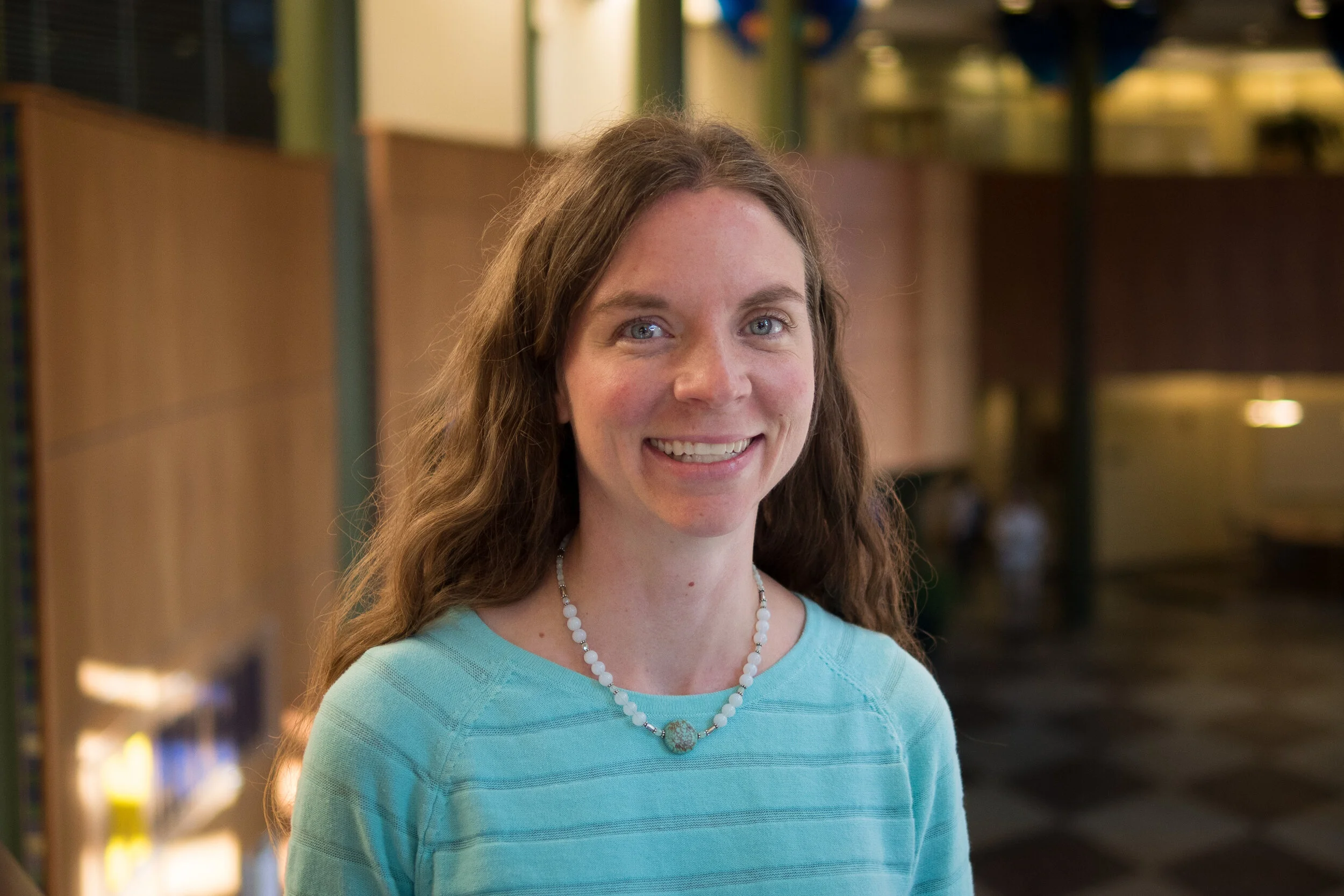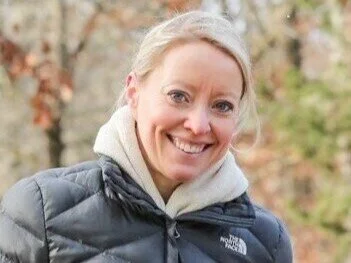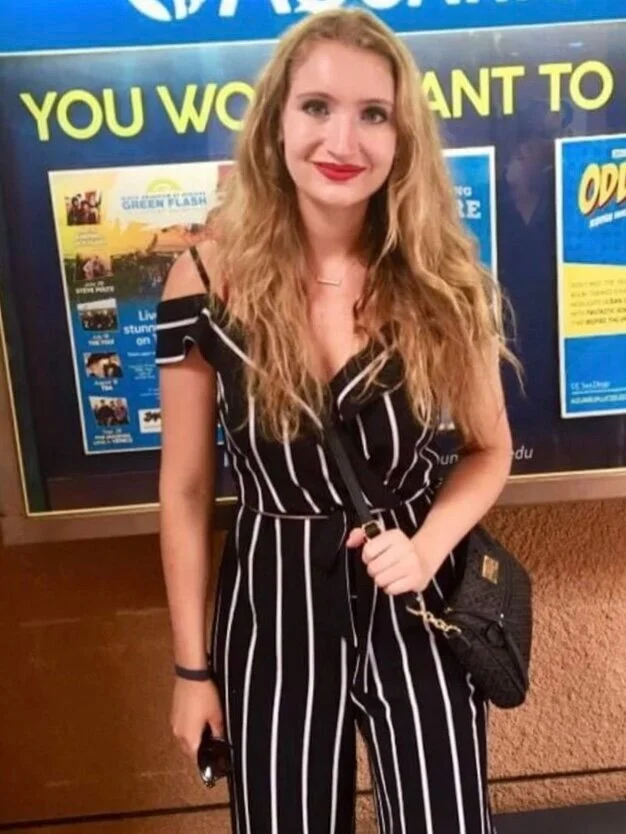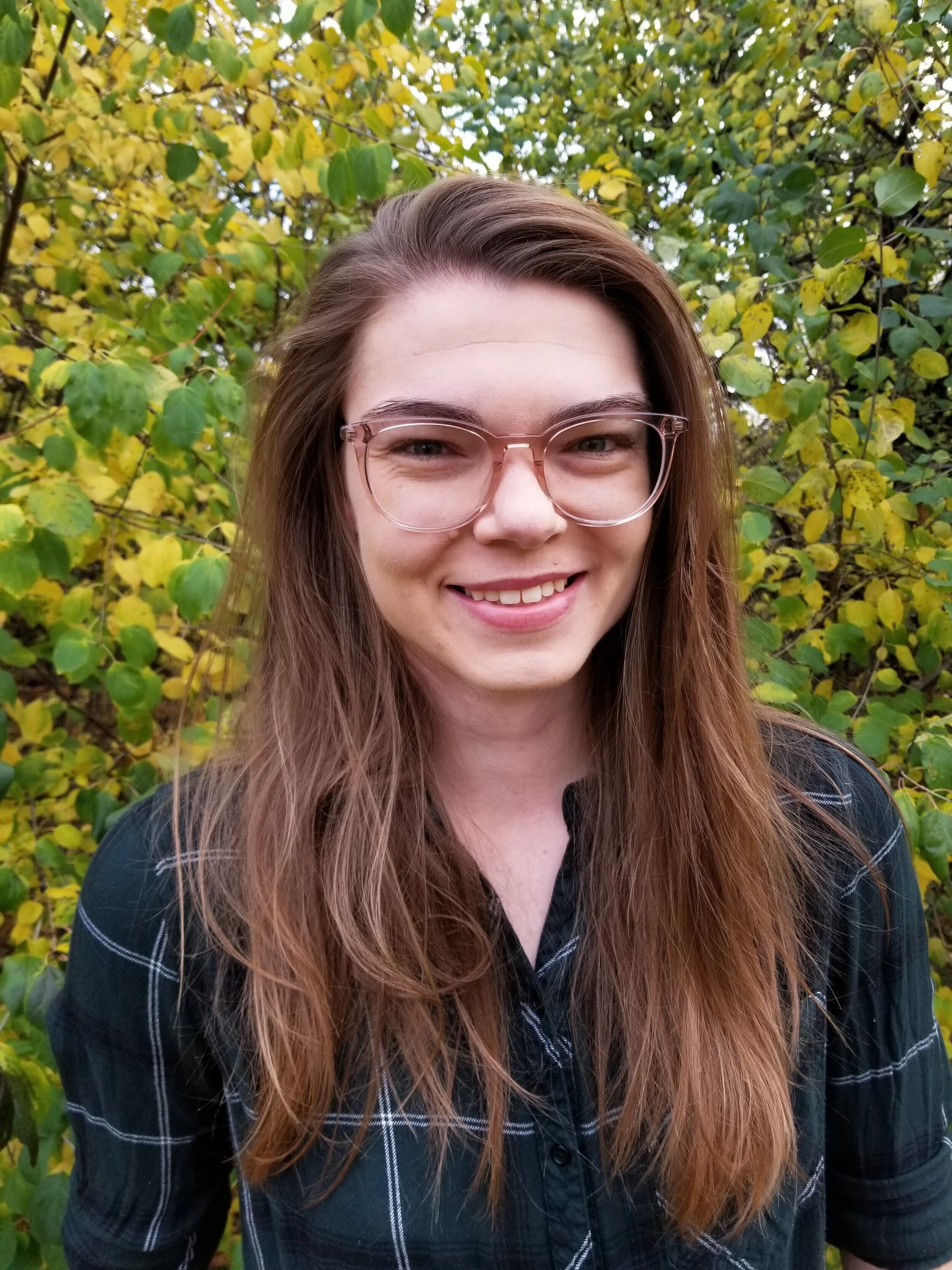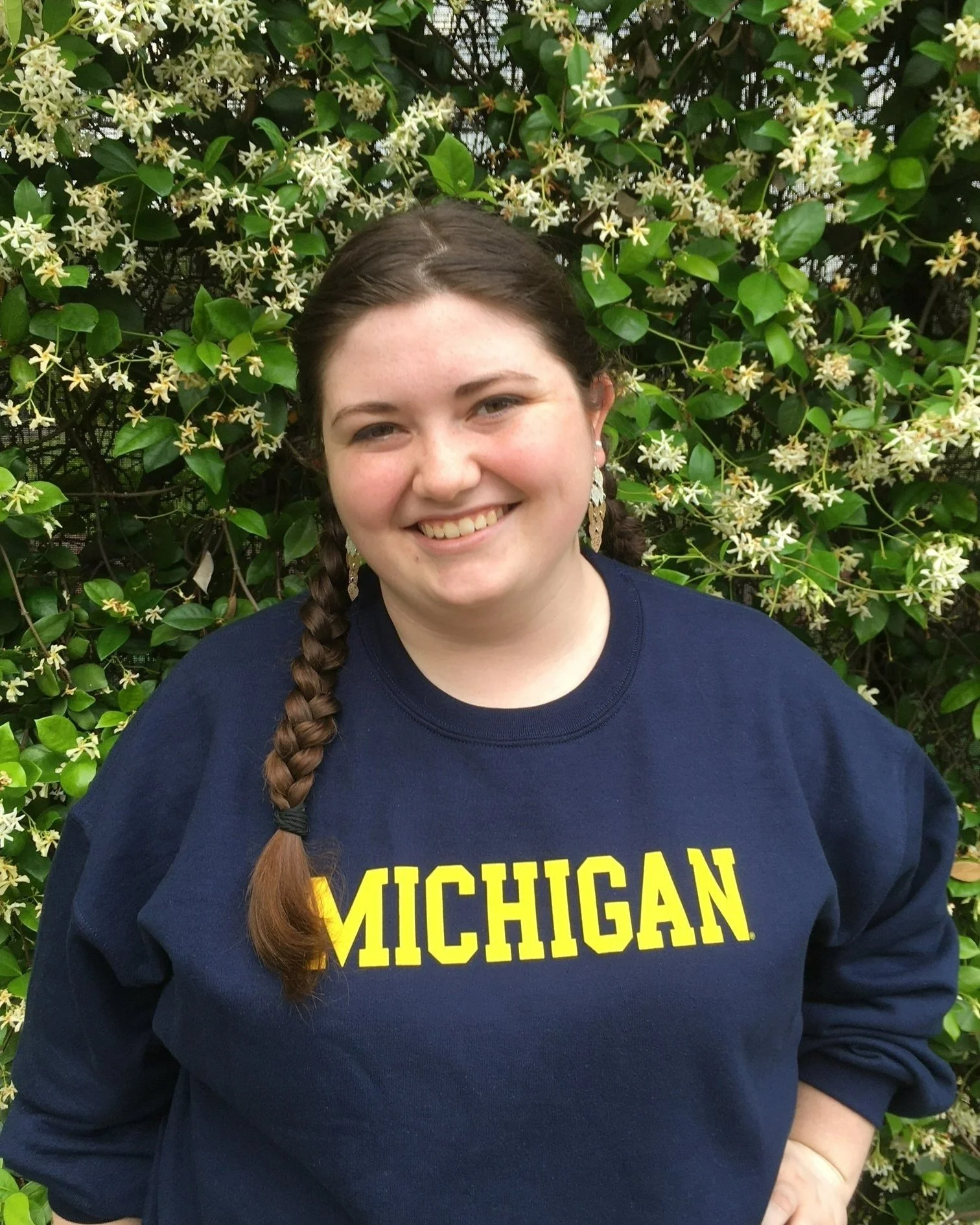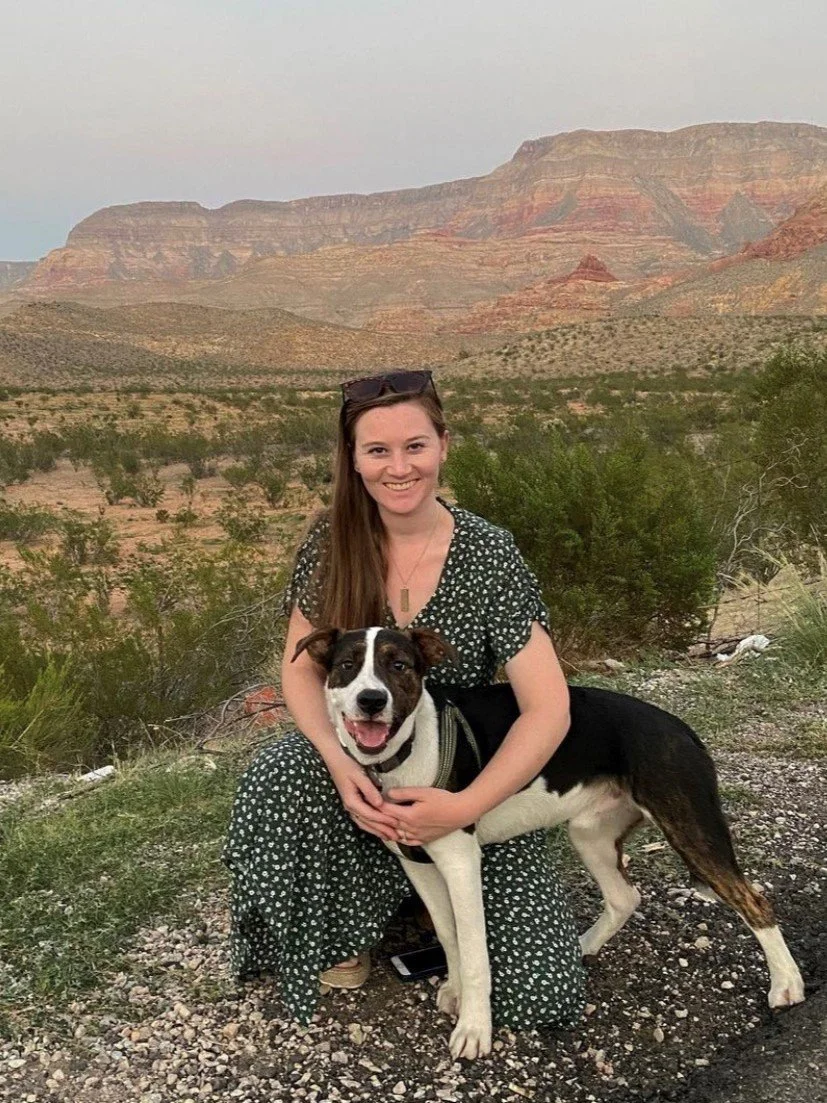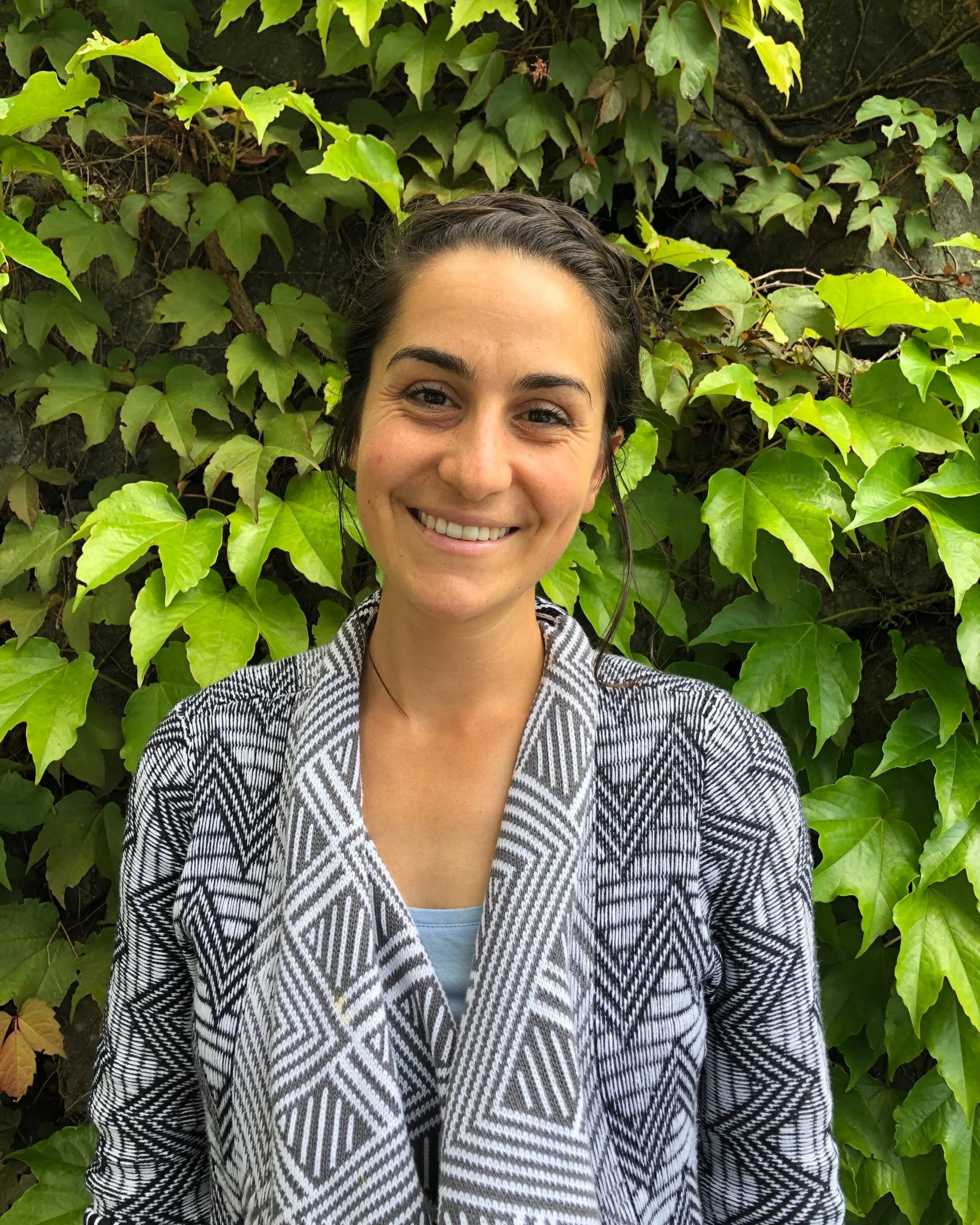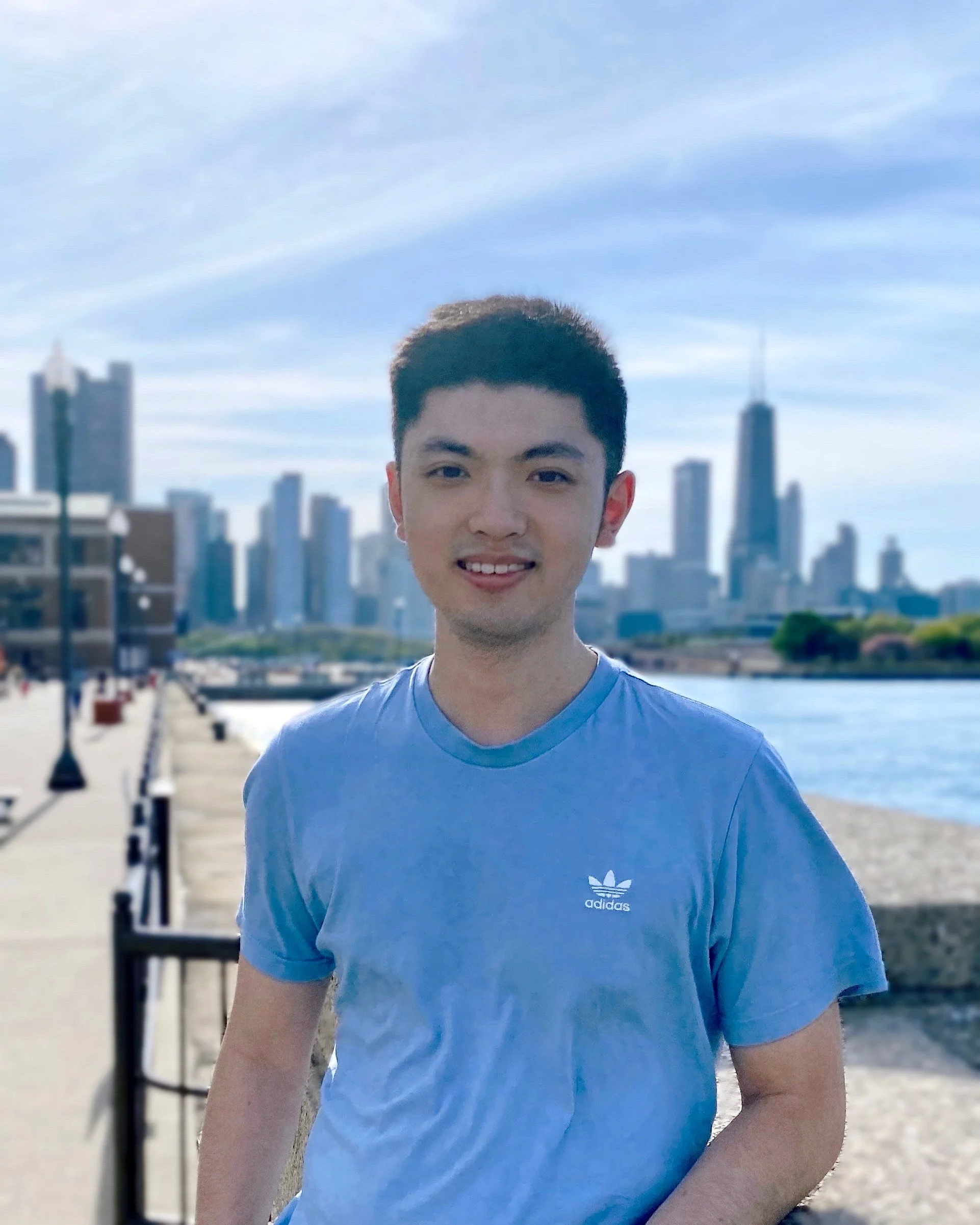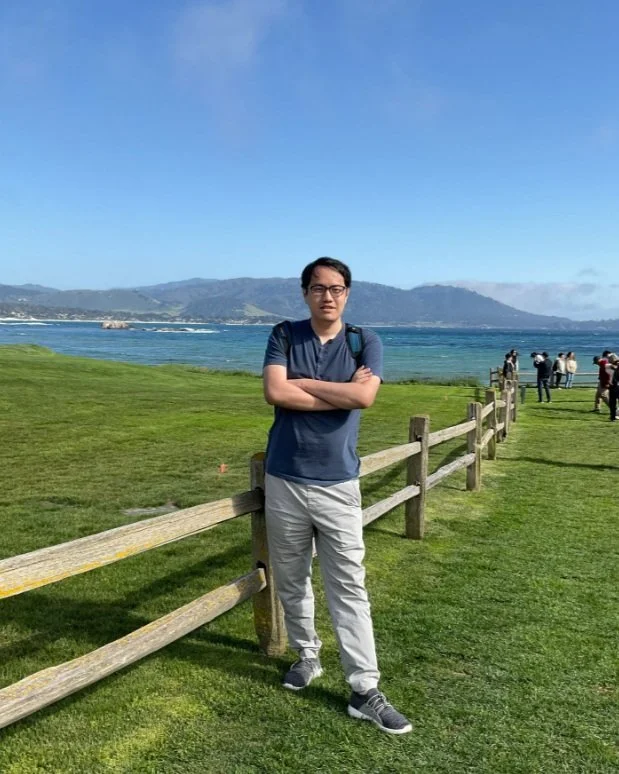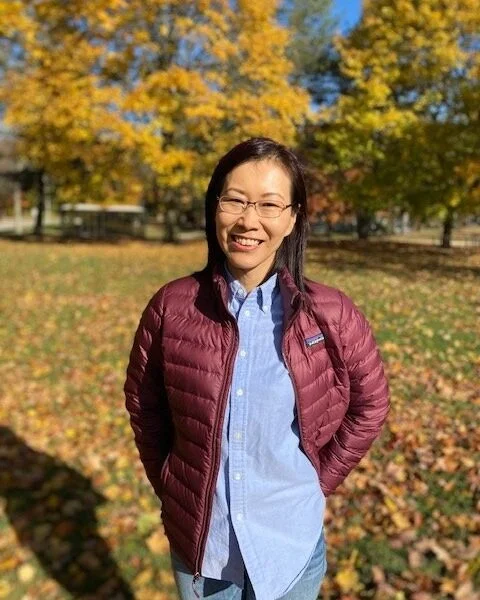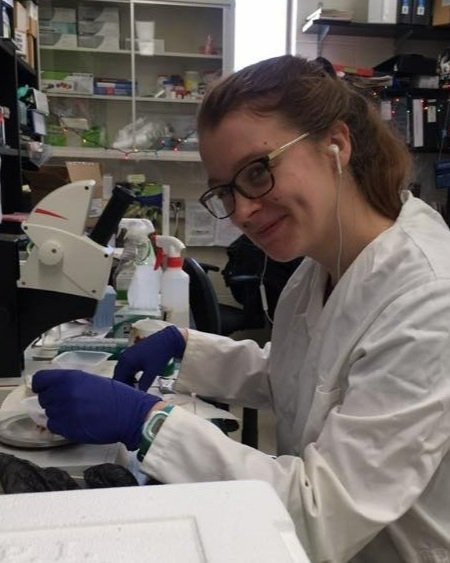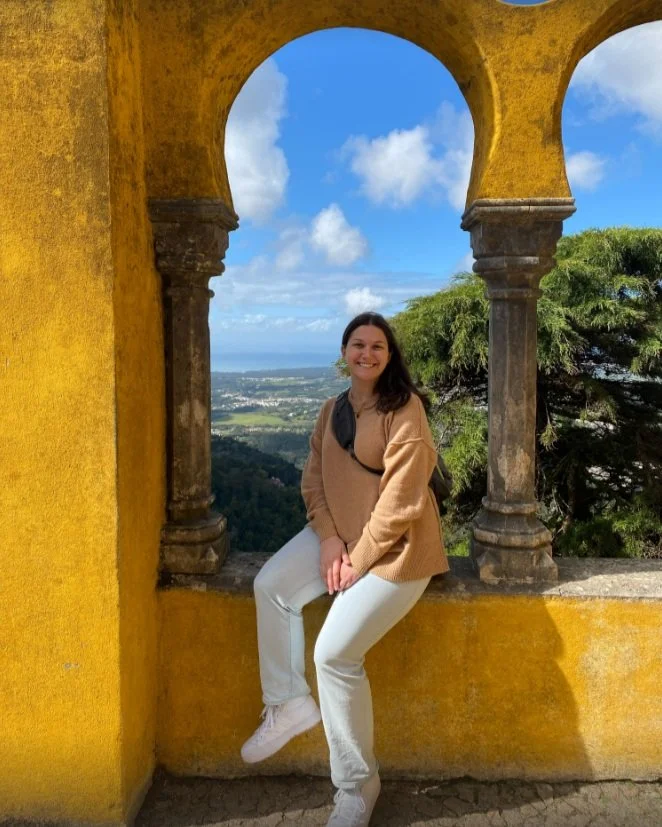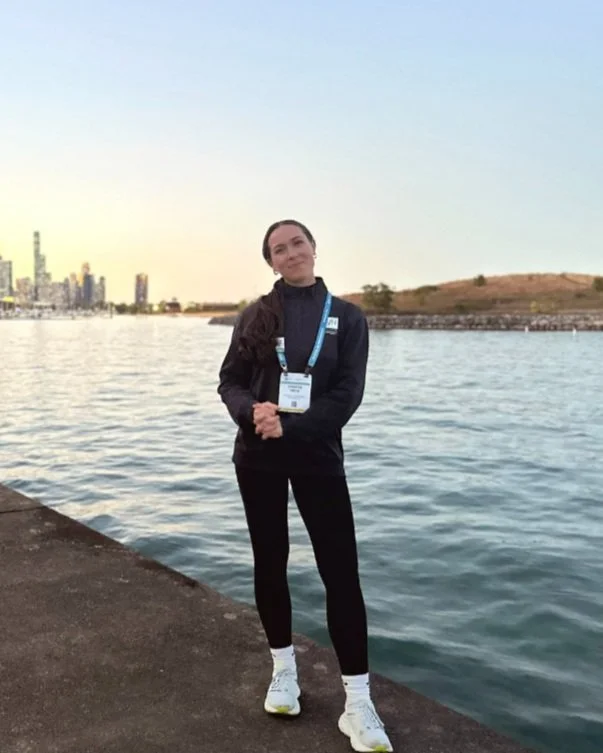Our Fearless Leaders
Dana Dolinoy, Ph.D.
Dr. Dana Dolinoy is a co-leader of the Dolinoy-Goodrich-Svoboda-Perera research group. She serves as NSF International Chair of Environmental Health Sciences and Professor of Nutritional Sciences and Environmental Health Sciences at the University of Michigan School of Public Health as well as Faculty Director of the Epigenomics Core at Michigan Medicine. She leads the Environmental Epigenetics and Nutrition Laboratory, which investigates how nutritional and environmental factors interact with epigenetic gene regulation to shape health and disease. Dr. Dolinoy holds a PhD in Genetics and Genomics and Integrated Toxicology from Duke University, and MSc in Public Health from Harvard University, and serves as Associate Editor of Environmental Health Perspectives, Environmental Epigenetics, and Toxicological Sciences, and served as Chair of the Gordon Research Conference in Cellular & Molecular Mechanisms of Toxicity. In 2011, Dr. Dolinoy received the Norman Kretchmer Memorial Award from the American Society for Nutrition and the Classic Paper of the Year Award from Environmental Health Perspectives. In 2012, she was the recipient of the Association of Schools of Public Health (ASPH)/Pfizer Research Award for the article, "An Expression Microarray Approach for the Identification of Metastable Epialleles in the Mouse Genome." This work was cited as a model approach that may allow for directly assessing the role of early environmental exposures in human adult disease. Dolinoy received the 2015 NIH Director's Transformative Research Award to develop novel epigenetic editing tools to reduce disease risk and served as the Co-Chair of the 2016 meeting, ToxicoEpigenetics: The Interface of Epigenetics and Risk Assessment. For more about Dana, see her UM-SPH faculty page or follow her on Twitter
Bambarendage Pinithi Perera (Pini), Ph.D.
Dr. Perera is a research assistant professor of Environmental Health Sciences at the University of Michigan School of Public Health, who actively participates in the Dolinoy-Goodrich-Svoboda research group. Her primary research interests lie in the field of environmental epigenetics, which seeks to identify molecular mechanisms and changes in epigenetic cues that result from environmental exposures at critical times in life, and to link these phenomena with their influences on human health and disease. She leads several research projects involving piRNA, a class of small non-coding RNAs as a potential tool for epigenome editing and as a potential biomarker for environmental exposures. Dr. Perera holds an associate degree in general Science from the Delgado Community College, Louisiana, and a bachelor’s degree in Biological Sciences from the University of New Orleans, Louisiana. Dr. Perera’s expertise is in epigenetics, where she has focused on mouse genetics, genomic imprinting, alternative promoters, and circular RNA during her doctoral studies at the Louisiana State University. In addition to research, she strives for excellence in scientific teaching, mentoring, leadership, community outreach, and service to encourage aspiring scientists. Since she was born and raised in Sri Lanka, a small island country in South Asia, Dr. Perera enjoys her free time cooking rice and curry to her friends and family, jogging, and participating in volunteer opportunities to promote diversity and inclusion.
Jackie Goodrich, Ph.D.
Jackie is a co-leader of the Dolinoy-Goodrich-Svoboda-Perera research group. She is a Research Associate Professor of Environmental Health Sciences at the University of Michigan School of Public Health. Jackie completed her undergraduate and graduate studies at the University of Michigan in cellular & molecular biology and toxicology, respectively. Currently, Jackie aims to identify chemicals and other environmental factors (e.g., nutritional deficiencies, social stressors) that impact the epigenome thereby altering disease susceptibility. She studies the impact of the environment on susceptible populations including children and workers with hazardous exposures. She is especially interested in prenatal and early childhood exposures that modify epigenetic programming and impact fetal and child growth, risk for cardiovascular and metabolic complications later in life. She is also a co-leader of the national Fire Fighter Cancer Cohort Study which aims to reduce cancer and other health risks in firefighters through community engaged research. When not conducting research, Jackie likes all things outdoors, running, and being with her three boys. For more about Jackie, see her UM-SPH faculty page or follow her on social media (@JM_Goodrich_EHS).
Laurie Svoboda, Ph.D.
Laurie Svoboda, PhD, is a Research Assistant Professor in the Department of Environmental Health Sciences, and a co-leader of the Dolinoy-Goodrich-Svoboda research group. Dr. Svoboda’s research is focused on understanding how early life toxicant exposures affect cardiac health through reprogramming of cellular metabolic and epigenetic processes. She is particularly interested in the sex-specific effects of toxicant exposures. Dr. Svoboda holds a B.S. in Chemical Engineering from Michigan State University. She worked in insulin manufacturing at Eli Lilly and Company in Indianapolis for three years before pursuing a Ph.D. in Toxicology from the University of Michigan. She conducted her postdoctoral research studies with Dr. Beth Lawlor at the University of Michigan, where she investigated the developmental origins of the pediatric tumor, Ewing sarcoma. Dr. Svoboda is passionate about teaching and mentoring the next generation of toxicologists and environmental health researchers. Outside of work, she is a mom of 9-year-old triplets and loves swimming, cycling and running. For more information on Laurie, see her UM-SPH faculty page.
Post-Doctoral Fellows
Jessa Ehlinger, Ph.D.
Jessa is studying toxicology as a doctoral student in the Department of Environmental Health Sciences. Having received her bachelors' degrees in Marine Biology and Spanish, she is excited to now be studying the human health side of environmental health more in-depth. Through her thesis work, Jessa is taking an epigenetics approach to studying the effects of prenatal mercury exposure on neurological outcomes in children of the ELEMENT (Early Life Exposures in Mexico to ENvironmental Toxicants) birth cohort. When Jessa is not in the lab, she enjoys playing her cello, SCUBA diving, cooking, hiking, and ignoring reminders from DuoLingo telling her to actually practice French.
Rachel Morgan, Ph.D.
Dr. Rachel Morgan is a Postdoctoral Fellow with the Colacino and Do-GoodS-Pi Groups. Dr. Morgan’s research focuses on how developmental toxicant exposures perturb neurodevelopment and contribute neurodegenerative disease risk, and how modifications to epigenetic mechanisms modulate these relationships. She is particularly interested in early developmental programming, epigenetic biomarkers of exposure and disease, and identifying targets for possible therapeutic development, and currently exploring the effects of toxicants such as metals (lead, cadmium) and pesticides. Dr. Morgan leads multiple research efforts, including a multigenerational mouse cohort and in vitro models, and is expanding her skills related to stem cell utilization and single cell sequencing analyses. Dr. Morgan holds a B.S. in Biology and Global Health from the University of Wisconsin and an MPH in Environmental Health Sciences from the Zilber School of Public Health at the University of Wisconsin – Milwaukee. She earned her Ph.D. in Environmental Health Sciences from the University of Michigan with a dissertation focused on developmental lead exposure and its impact on genomic imprinting and transposable element regulation, as well as the characterization of piRNA expression in somatic tissues during early development. Dr. Morgan also greatly enjoys mentoring in and out of the lab, and has contributed to the mentorship of several graduate and undergraduate students. When not in the lab, she enjoys spending time with her two spunky dogs, cooking and baking, reading, and working on extensive remodeling projects with her partner.
Graduate Students
Maggie Rubens, M.P.H.
Maggie is a Ph.D. student pursing a degree in Toxicology. She received her B.S. in Environmental Science from UCLA and her M.P.H. in Environmental Health Sciences from the University of Michigan. Maggie’s research focuses on the role of chemical exposures during pregnancy on immediate and long-term maternal and fetal health. Her current work involves studying the impact of in utero exposure to per- and polyfluoroalkyl substances (PFAS) and modification of the maternal/fetal lipidome. When she is not in lab, Maggie enjoys baking, spending time with family and friends, and hiking with her partner and dog, Baxter.
Lauren Ward, M.P.H. & T.M.
Lauren is a PhD student pursuing a degree in Environmental Health Sciences. She holds a B.S. in Biology from Purdue University and an MPH&TM in Tropical Medicine from Tulane University. She is passionate about science communication, One Health, stakeholder engagement, sustainability of research, and promoting student community involvement beyond the university setting. Lauren's research interests combine environmental epidemiology, epigenetics, and occupational health. Her dissertation work aims to understand the impacts of PFAS exposure on epigenetic age and immunity in firefighters and adolescents. Outside of academia, you can find her kayaking, taking photos in nature, or traveling to meet her goal of experiencing thirty countries before she turns thirty years old.
Ariana Haidari, M.S., R.D.
Ariana is a Ph.D. student in Environmental Health Sciences. She completed her B.S. in Dietetics at the University of Delaware and her Dietetic Internship at Cornell University. Prior to beginning graduate school, she worked as a registered dietitian for the Women, Infant, and Children Supplemental Nutrition Program (WIC) and in acute eating disorder treatment. In 2019, she was named Recognized Young Dietitian of the Year by the International Affiliate of the Academy of Nutrition and Dietetics. She holds a Master of Science in Quantitative Biomedical Sciences from Dartmouth College, during which she conducted microbiome research at the Institute for Systems Biology in Seattle, Washington. Ariana is interested in the relationships between maternal environmental and nutritional exposures and early predictors of disease in the offspring, and in integrating computational approaches into public health practice. She can be found daydreaming about mountaineering and recently learned to ice climb.
Junru Pan, B.S.
Junru is a Ph.D. student pursuing a degree in Nutritional Sciences at the University of Michigan School of Public Health. He has a B.S. in Food Science from the University of Nebraska-Lincoln and a B.E. in Food Science and Engineering from Northwest A&F University in China. He has been involved in developing functional foods and is interested in the combination of nutritional interventions, precision nutrition, and epigenetics. He has a wide range of hobbies, especially painting. He has drawn illustrations and cover pictures for several journals in his spare time. Outside of the lab, he enjoys traveling, watching movies and doing outdoor activities.
Dongyue Wang, M.S.
Dongyue Wang, is a doctoral student pursuing a degree of Toxicology in the Department of Environmental Health Sciences where he also completed his MS degree in 2023. He is broadly interested in the relationship between environmental exposure and epigenetic regulation, especially a class of small non-coding RNA, piRNA. He aims to identify the potential of piRNA to serve as a biomarker for environmental exposure and ultimately to use it as a tool for epigenetic editing.
Tomoko Ishikawa, M.S.
Tomoko is a PhD student studying Toxicology in the Department of Environmental Health Sciences. She received her B.S. in Pharmaceutical Sciences from Kyoritsu University of Pharmacy in Japan and her M.S. in Pharmacology and Toxicology from the University of California, Davis. Before she came to the U.S., she worked as a pharmacist in Japan. Tomoko’s research interests center around early life exposure to toxicants and chronic health outcomes. She is particularly interested in investigating the epigenetic impacts of toxicants on heart disease outcomes. Outside of the lab, Tomoko enjoys playing games and building Lego vehicles, mechs, and other creations with her two children.
Kimmie Sala-Hamrick, B.S.
Kimmie is a PhD student pursuing a degree in Toxicology. She has a B.S. in Biology from the University of Michigan and worked as a research assistant at Wayne State University School of Medicine before starting graduate school. Her research projects focus on developmental exposure to PFAS and its possibility to affect piRNA biology in the heart. In her free time, Kimmie enjoys exploring the great outdoors and her cats, Aang and Bumi.
Kat Springer, M.P.H.
Kat is a PhD student on the Environmental Health Sciences track. She holds a BS in Evolutionary Anthropology from the University of Michigan and an MPH in Environmental Health and Epidemiology from the Rollins School of Public Health at Emory University. Her research interests lie in connecting environmental epidemiology and the developmental origins of health and disease hypothesis. Specifically, she has experience researching prenatal exposure to plastic additives, such as phthalates, and their potential effects on infant neurodevelopment, as well as how maternal anxiety and depression may modify that relationship. Outside of school, Kat enjoys singing in local choirs, hanging her hammock up in the Arboretum, or traveling!Kat is a PhD student on the Environmental Health Sciences track. She holds a BS in Evolutionary Anthropology from the University of Michigan and an MPH in Environmental Health and Epidemiology from the Rollins School of Public Health at Emory University. Her research interests lie in connecting environmental epidemiology and the developmental origins of health and disease hypothesis. Specifically, she has experience researching prenatal exposure to plastic additives, such as phthalates, and their potential effects on infant neurodevelopment, as well as how maternal anxiety and depression may modify that relationship. Outside of school, Kat enjoys singing in local choirs, hanging her hammock up in the Arboretum, or traveling!
Jennifer Smith, B.S.
Jennifer Smith is third-year Toxicology PhD candidate studying the effects of lead (Pb) exposure on the brain using cell and animal models. Her research focuses on understanding how developmental exposure to heavy metals can influence psychiatric disorders such as ADHD, schizophrenia, depression, anxiety, and mood disorders. She is particularly interested in exploring how specific mechanisms, like alterations to the glutamatergic system through NMDA receptor changes and modifications to the epigenome (piRNA), may contribute to these disorders following metal exposure. Additionally, as a native of the Youngstown, Ohio area, Jennifer is deeply committed to addressing the prevalence of chronic disease in the American Rust Belt, where communities have faced generational exposure to environmental toxicants due to their histories in manufacturing and agriculture. She aims to use her doctoral training in public health to advance scientific understanding and advocate for policy changes that enhance protections for vulnerable populations.medy.
Chloe Thach, B.A.
Chloe Thach is a first year Masters of Public Health student in the Environmental Health Promotion and Policy program. Chloe received bachelors of arts degrees in public health (human disease & epidemiology), individualized studies (environmental health equity), biology, and neuroscience from Miami University in 2024. Her research and career interests include how vulnerable communities may be disproportionately exposed to lead (Pb), what disparate health outcomes result from these unjust exposures, and what actions can be taken to support these vulnerable communities. Before her work in the Do-Goods-Pi Lab, she investigated the effects of adolescent lead exposure on addictive-like behaviors in mice by using behavioral mouse models. She also investigated the relationship between redlining, overdose incidence, and blood Pb levels in three major Midwestern cities in the U.S. In her free time, she enjoys playing with her kitten named Sushi, making food for friends and family, and traveling!
Undergraduate Students
Hafsa Aleem
Hafsa is a pre-medicine undergraduate student at the College of LSA at the University of Michigan. Hafsa is eager to explore effective ways of implementing health policies. Her focus extends to the systemic issues that contribute to health disparities, particularly in demographics facing unique challenges, such as women of color in developing nations like her native country of Pakistan.She envisions her work contributing to a better understanding of health issues and ultimately driving positive change in policy frameworks. With a commitment to addressing the healthcare needs of underserved communities, she hopes to concentrate future medical care on issues affecting children, aligning with her goal of completing a residency in pediatrics.Outside of school and work, Hafsa enjoys partaking in her hobbies. These include doing nails, henna, crocheting, knitting, and posting photos of all the above!
Lily Ruden
Lily is an undergraduate student at the University of Michigan pursuing a B.S. in Biochemistry and a minor in Asian Languages and Cultures. Prior to her work in the DoGoodS-Pi lab, she was involved in research for understanding the basis for functional retrogenes in mice. Lily’s research interests include the field of epigenomics and its intersection with the environment and nutrition. In her free time, Lily enjoys baking, video games, dancing, and playing clarinet in the Campus Philharmonia Orchestra.
Research Staff
Tamara (Tami) Jones
Tami is our lab manager and senior research specialist. She oversees all logistics within the lab regarding safety and equipment. She is the longest standing member of our research group and an expert in all things molecular biology. You can find her advising all lab members on proper techniques, new methods, and more. In her spare time, she cares for her two horses.
Mason Collard, B.S.
Mason is a lab technician senior that helps support daily lab operations and research experiments. He obtained his B.S. in the Environment as well as Ecology, Evolution, and Biodiversity from the University of Michigan. Mason is interested in the intersection of ecology and toxicology and plans to pursue a PhD in ecotoxicology or environmental toxicology. In his free time, he enjoys hiking, mountain biking, and reading.
Previous Members and their Current Affiliations!
Olivia Anderson, PhD, MPH, RD
Clinical Associate Professor, University of Michigan
Anna Sadovnikova, MPH
MD/PhD Candidate, University of California, Davis
Chris Faulk, PhD
Associate Professor, University of Minnesota
Luke Montrose, PhD
Assistant Professor, Colorado State University
Mackenzie Zima, MS
Carly McCabe, PhD, MS
Postdoc at Geisinger Health System, PA
Ali Dewald, B.S.
Medical student at George Washington University
Amber Siglin, M.S.
Research Lab Specialist Associate, Michigan Medicine Microbiology and Immunology
Katelyn Polemi, PhD
Postdoc, Michigan State University
Muna Nahar, PhD
Toxicologist, U.S. Environmental Protection Agency
Zishaan Farooqui, MD, PhD
Resident at Cincinnati Children's Hospital
Lisa Marchlewicz, PhD, MPH, RD
Senior Research Analyst, IBM
Ainash Childebayeva, PhD
Assistant Professor, the University of Texas Austin
Viviana Geron
Undergraduate student, Duke University
Christine Rygiel, PhD, MPH, CIC
Senior Territory Account Manager, Illumina
Kat Springer, B.S.
Doctoral Student at University of Michigan
Margaret Quaid, M.S.
Doctoral Student at Boston University
Michael Akpabey, M.S.
Broad Institute
Julie Jung Kim, PhD
Research Scientist, Progenity
Amanda Barks
MD/PhD Candidate, University of Minnesota
Zing Tsung-Yeh Tsai, PhD
Bioinformatics Scientist, Illumina
Kari Neier, PhD, MPH
Scientist at Boehringer Ingelheim
Patrick O'Dowd, MS
Natalie Kerr, M.S.
University of Illinois, Illinois State Water Survey
Burnley Truax, MPH
Graduate Fellow, U.S. Environmental Protection Agency
Bek Petroff, PhD
AAAS Science and Technology Policy Fellow
Jiahe Tian, M.S.
Research specialist, Michigan State University
Kelly Bakulski, PhD
Assistant Professor, University of Michigan
Caren Weinhouse, PhD
Assistant Professor, Oregon Health and Science University
Joseph Kochmanski, PhD, MPH
Data Scientist at Rancho Biosciences
Maureen Malloy, MS
PhD candidate, Johns Hopkins
Suzie Lee, MS
Naquia Unwala, B.A.
MD student, Georgetown University
Swati Sriram, MPH
Environmental Health Scientist, ICF
Mathia Colwell, PhD
Postdoc, Oregon Health & Science University
